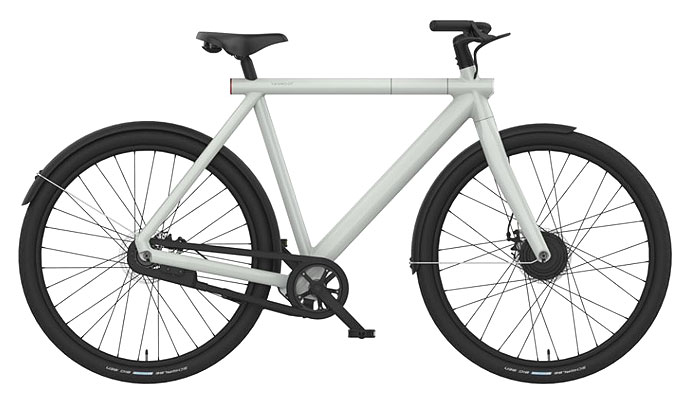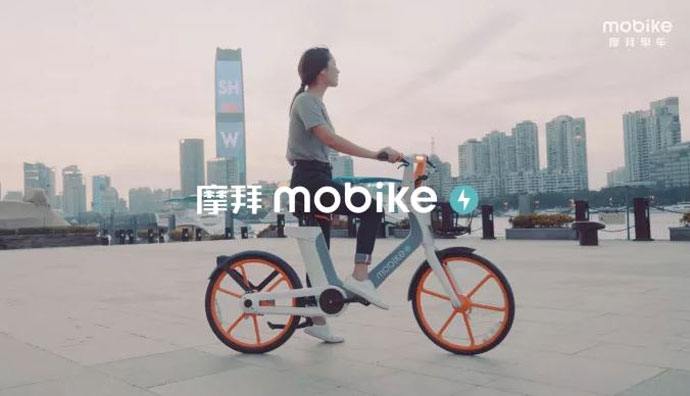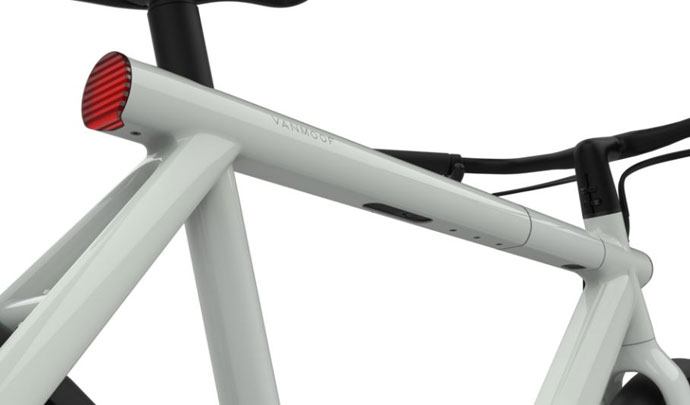
Make no mistake. The future of urban personal motorised transport is the electric bicycle.
The Uber of the dockless bike world, Mobike has this week unveiled a dockless e-bike, which is due to be introduced both in China and international markets.
Mobike founder Hu Weiwei: “Demand for e-bikes is growing. We believe that they will complement our original bikes, and will further improve city life for both our users and cities themselves by reducing the reliance on cars.”

Mobike already has nine million bikes and 200 million registered users around the world. The advent of dockless e-bikes could see these figures rise exponentially as the Uber generation embrace the benefits of cycling without the downsides of ownership.
Any future large-scale growth of the electric bike market here in Britain is likely to be down to the likes of Mobike and manufacturers, for despite the potential they hold to tackle local air pollution, the government does next to nothing to promote their use.
These so-called pedelecs are considered by government to be unworthy of the grants offered to electric cars and dismissed by purist cyclists as a cheat, but battery-assisted cycles are a practicable solution to urban congestion and polluted air. As pedelecs increase in popularity in Europe, the designs offered by manufacturers are becoming ever more refined towards the needs of commuter cyclists.

One such company is VanMoof with its S2 and X2 models, which boast a built-in ‘Stealth Lock’, rider recognition and alarm, but perhaps most usefully, a range of 150km (93 miles).
The Electrified S2 & X2 come with a revolutionary (and virtually invisible) Stealth Lock that stops the wheels from turning and activates the theft defense system with a kick, automatically unlocking and disarming when the owner is nearby. Combined with the integrated alarm and lock-down system that makes it impossible to ride (let alone sell) if stolen, it’s a completely new way of thinking about bike security—one where the rider never has to worry about a thing.
| “We can build bigger and tougher locks, or we can truly solve the problem…”
According to Taco Carlier, VanMoof Co-founder “We can build bigger and tougher locks, or we can truly solve the problem by making our bikes pointless to steal in the first place. Using smart technology we’ve created a bike that can take perfect care of itself, leaving no more worries for the rider.”
Should the bike be stolen, the owner alerts VanMoof’s Bike Hunters via the app. This service guarantees that if the bike can’t be tracked down within two weeks, VanMoof will replace it.
The ethical choice
The ETA was established in 1990 as an ethical provider of green, reliable travel services. Over 30 years on, we continue to offer cycle insurance , breakdown cover and mobility scooter insurance while putting concern for the environment at the heart of all we do.
The Good Shopping Guide judges us to be the UK’s most ethical provider.

John Holiday
It’s high time we dismissed this ‘cheating ‘ comment.
I have several friends in their 80s who are still able to ride with assistance they get from pedelecs on the hills. They still have to pedal & obviously get the benefits of this exercise.
If it keeps older riders cycling, then it has to be beneficial.
Philip
Absolutely John.
It is a shame the image of cycling in the UK is one of a sport for speed and endurance to be pursued by a clique, and not one of leisure and transport to benefit all ages. The electric bicycle will hopefully change all that.
Colin Divall
Hmm. An academic workshop I attended last week in the Netherlands on the future of sustainable urban mobility reported that in China (where e-bikes re booming) the whole-lifecycle carbon cost per person-kilometre travelled of a e-bike is roughly equivalent to that of a conventional bus. The problem is (still) partly the batteries. So in terms of the environment, it very much depends on whether people switch to ebikes from cars (good), buses (so so) or conventional bikes (bad). At the moment it seems as though while a few people do give up driving, it is cycling that is suffering the largest proportional drop. There might well be other reasons to welcome e-bikes, as noted above, and their carbon footprints might improve eventually: but as with all technical fixes, it pays to look beyind the (often self-interested) headlines….
greg
I am sorry but this article only applies to England
Scotland has e-bike grants!
http://www.energysavingtrust.org.uk/scotland/grants-loans/ebike-loan